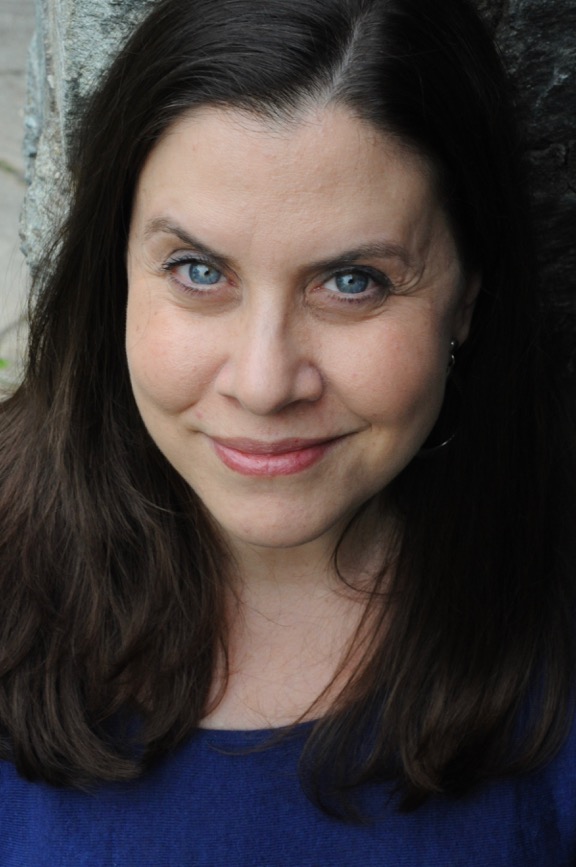In order to be a “writer,” many people believe that one must have a degree or writing experience. However, author, writer and historian Alexandra Zapruder proves that anyone can be a writer.
“You don’t have to be a ‘good writer.’ It’s not about being good or bad, talented or gifted,” Zapruder said. “Rather, it’s all about being authentic. There’s three main parts to writing that I always talk about: observe, write and reflect — that’s all you have to do.”
At 10:45 a.m. Friday, July 22, in the Amphitheater, Zapruder closes out Week Four’s theme, “The Future of History.’’ A founding member of the United States Holocaust Memorial Museum. In 2002, she released her first book, Salvaged Pages: Young Writers’ Diaries of the Holocaust, which contains firsthand diary accounts of young people’s experiences during the Holocaust.
Throughout her career, Zapruder has located and collected numerous historical diaries written by young people, ranging all the way from World War II to present day.

“One of the things about historical diaries that has surfaced is that not every writer was a ‘good writer,’ ” Zapruder said. “There are many literary writers, but there are also a lot of historical diaries that were written by average individuals and kids with no literary experience.”
While Zapruder spent the beginning of her career compiling historical sources, she now works to encourage current teenagers and young adults to document their own lived experiences. In her work, she balances recovering history with documenting history as it occurs.
“There’s the process of researching and finding what’s already been made,” she said. “But with the current work I am doing, there is now an added dimension, which is to create opportunities for material to be written.”
In her lecture, she will discuss the different historical diaries that have been written by young people, and will speak to the importance of cultivating experiences for younger generations to have the opportunity to document history as it happens.
Zapruder’s recent project, Dispatches from Quarantine: Young People on COVID-19, provides teenagers with an online space to document their real-time experiences during the pandemic. This week, she hosted journaling workshops with young Chautauquans at Boys’ and Girls’ Club, and she pointed to the need of continuously fostering environments where adolescents can openly express themselves. Aside from social media, there are not many forums for young people to do so.
“In my view, young people experience the downstream effects of adult policy all the time without really having a mechanism to be on the historical record,” she said.
Through her work, Zapruder is working to place teenagers and young adults on the historical record, and to give them a voice.
“The message I want to impart to young people is that the way they view the world and what they record about their lives really does matter to history,” she said. “You never know if what you are photographing, seeing and observing could have enormous consequences for future generations.”
In her book, Twenty-Six Seconds: A Personal History of the Zapruder Film, she wrote about her grandfather, Abraham Zapruder’s, home movie of President John F. Kennedy’s assassination. On Nov. 22, 1963, her grandfather decided to film JFK’s motorcade procession through downtown Dallas, near his office. He was excited to see Kennedy drive through and wanted to capture the moment; he had no idea the footage he filmed would become a tragic moment forever embedded into America’s historical record.
“With my grandfather, it’s this interesting mix of both intention and accident. He took the movie on purpose, he was mindful about his camera being at the right spot and angle,” Zapruder said. “However, what he couldn’t have predicted was what was going to be on the film, and how monumentally important that one piece of footage would be to American history.”
Her grandfather’s camera captured the exact moment JFK was shot. The footage was used in FBI investigations, and was highly sought after by the press. The clip became a valuable artifact of a single moment of time.
History is often unpredictable, and Zapruder believes that documentation can help make sense of these unexpected events.
“I think it’s important for young people today to repurpose the strength of keeping a journal,” she said. “What you write might not only be valuable to history, but it can cultivate reflection, observation and self-awareness, which can shape the adult you become. The more teenagers and young adults can do that, the better off we are going to be.”




